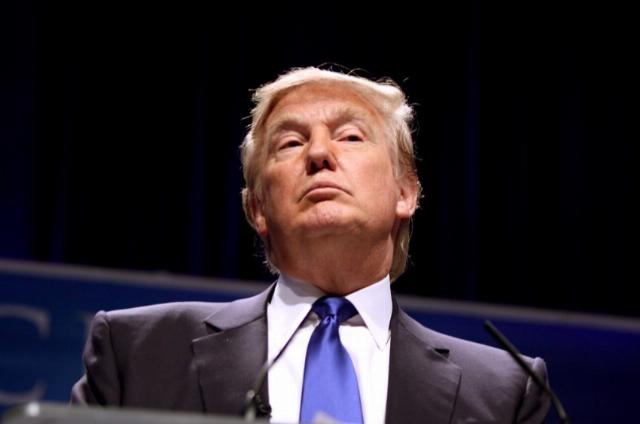About Those Economists Terrified of a New Trump Term
Recently, sixteen Nobel Prize–winning economists released a letter saying that if Trump wins the election, his policies will cause rampant inflation. Here are portions of the letter, from Reuters:
While each of us has different views on the particulars of various economic policies, we all agree that Joe Biden’s economic agenda is vastly superior to Donald Trump.
We believe that a second Trump term would have a negative impact on the U.S.’s economic standing in the world, and a destabilizing effect on the U.S.’s domestic economy.
Many Americans are concerned about inflation, which has come down remarkably fast. There is rightly a worry that Donald Trump will reignite this inflation, with his fiscally irresponsible budgets.
You might think it’s odd that eight hours after the release of the first story about the letter, I cannot find the full letter online. But this is how disinformation works. A bit of information is pushed out, and if it gains traction with the audience, more will be revealed.
We cannot assume that other mainstream media promoting the story means traction. The real traction is belief by the audience. If the audience falls for the misinformation, we’ll see maybe business people, union leaders, and others (like farmers) standing up for Old Joe.
Because we know this is a disinformation campaign, we have a chance to fight it before that happens. If we can break the narrative by displaying its sordid underside, we can stop it now. So here we go.
In 1996, I got a Bachelor’s degree from Arizona State University in economics. Most of the economics classes I took concerned development and trade, with one class looking at antitrust and monopolies. I also took the required macro- and micro-economics classes.
People have repeatedly asked me how New York congressman Alexandria Ocasio-Cortez could have an economics degree when her policies seem so disconnected with reality. The disconnect is because of the classes she took to get her degree, and where she took them.
At Boston College, a class on economic growth discusses the ways imperialists, capitalists, and settlers abused native populations to steal their wealth. At Arizona State, the teachers emphasized the creation of steel mills, communication networks, legal protections for private property, and transportation. This difference is huge.
It’s about perspective. The Boston College, Berkley, Columbia, or Stanford graduate has a different way of looking at the world. It’s all about oppressed and oppressor, victim and violator. At Arizona State, it is about builders and creators, growth and improvement.
The biggest failure of economics is the teaching of Keynes’s model. John Maynard Keynes (pronounced like “Canes”) was a Depression-era economist who favored growing the economy out of the Depression with increased government spending. An honest look back at the results shows that this was a failure.
But Keynes has fans because his policies allow unrestrained government spending, and he developed an intricate model of the economy. Unrestrained economic spending appeals to the fans of big government. The left-wing economics professors also fall for social justice and victim cult ideologies.
Today, all business school students learn Keynes’s economic model. But only the people who go on to get an economics degree also get a deep look at why the model is wrong. In the third-year micro- and macro-economics classes, the works of Milton Friedman and the Chicago School are used to punch holes in Keynes’s work.
Because the left wants the unrestrained spending Keynes’s model justifies, the left doesn’t look too closely at the failures of the model. It’s kind of like the saying, “Don’t look a gift horse in the mouth.”
So with that out of the way, back to the sixteen economists’ letter. The person responsible for writing the letter is Columbia University professor Joseph Stiglitz. Columbia is a left-wing university dominated by socialists.
Wikipedia calls Stiglitz a “New Keynesian economist” known for “his critical view of the management of globalization” and “of laissez-faire economists (whom he calls ‘free-market fundamentalists’).” Unpacking that, “New Keynesian” means he tries to defend Keynes from more recent math-based economists. A “critical view of the management of globalization and laissez-faire” shows that Stiglitz thinks the world should be managed by elites and despises capitalism.
Note the demeaning term “free-market fundamentalists.” What a neat way for an economist to show what he believes. Elsewhere, the Wikipedia page calls Stiglitz a “Georgist.” Georgism is a movement where people get paid based on their labor, and the state owns everything else.
Georgism is like communism, except you can choose where you go to work. You don’t own your house; you rent from the state. You don’t own or start a business; the state owns all businesses. The state owns everything, including your corpse when your soul has moved on.
Stiglitz is also popular with the United Nations crowd. That’s not surprising. He’s a one-worlder, and some elite few — like him — must be in charge.
So, simply put, the originator of the letter claiming that Trump will cause inflation is a member of the global elite and fights for one world under communism. Stiglitz doesn’t represent America.
Even worse, the world Stiglitz is working to create has no room for America.
I looked up the other economists who signed Stiglitz’s letter. All of them have similar backgrounds and similar biases against freedom. None of the signers represents America.
We can fight about whether Trump’s policies will cause inflation or not, but we should also scrutinize the signers of the letter. They are followers of a discredited economic model that rationalizes government spending. They are proponents of one world run by the U.N.
The signers are not speaking in the best interests of America.
Terry Gibbs’s new book The Resentful Citizen Looks at America explores today’s political landscape and reveals connections between leftist ideology and Soviet disinformation campaigns. Twitter: @ImResentful.

Image: Gage Skidmore via Flickr, CC BY-SA 2.0.





